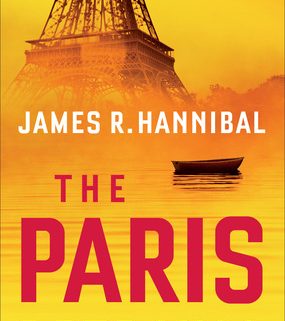Book Review: The Paris Betrayal by James R. Hannibal
This novel started with a bang just like you want a spy thriller to start. Bullets flying, bad guys fleeing, good guys mission isn’t as successful as planned and the fate of the world is in Ben Calix’s hands. Plus, we get some inside tips from the ‘How to be a Successful Spy Training Manual’ (in italics) which I really enjoyed.
We’re soon taken on a series of fast chases throughout Europe and Hannibal’s descriptions of the various settings were tremendous in helping us feel we were in the scene. Having travelled a few times to Paris I particularly loved ‘going back’ especially to my favourite cathedral, Notre Dame, and to be taken inside while it’s being repaired was a special treat.
The pace is relentless as Ben’s mission keeps being thwarted by both the bad guys but also apparently by his employer who has ‘set him afloat without a paddle’. The obstacles he confronts become increasingly dire especially as his support crew seem to have abandoned him or get seemingly eliminated.
In the background, we get a very cagey sense of the bad guys, a nefarious organisation dubbed Leviathan led by someone that goes by the moniker, Jupiter.
Surprisingly, I found after the first 100 or so pages I was struggling to stay interested. And this stayed with me for most of the novel which bothered me. As I would usually love this kind of story. By the end of the story I realised why I had this strange experience. Three reasons:
- I really wasn’t that invested in Ben and his mission. I think all the action and obstacles denied Ben and the reader sufficient time to breathe so we could get to know the guy.
- the bad guys were too nebulous for me. They only appeared a handful of times in discreet conversations between Jupiter and his side kick, Terrance, so we really didn’t get to know why they were doing what they planned.
- the supporting cast were many and only flitted in and out of the story for a short period so again we never invested in them. Ben has a love interest in Giselle and then Clara, and perhaps did a few years back for Tess, but we really never learn much about any of them. I really wanted to like Clara, in particular, and we get some insight into her when she gets to tell the story for a chapter or two, but it didn’t continue to maintain my interest.
I thought the ending was clever as it surprised me. The author’s note at the back gives some insight into the background behind Ben’s development but it didn’t quite gel for me.
Overall, this is a quality spy story and judging by the many other positive reviews is one that appeals to many people.
I received an early ebook copy from Revell via NetGalley with no expectation of a favourable review.



